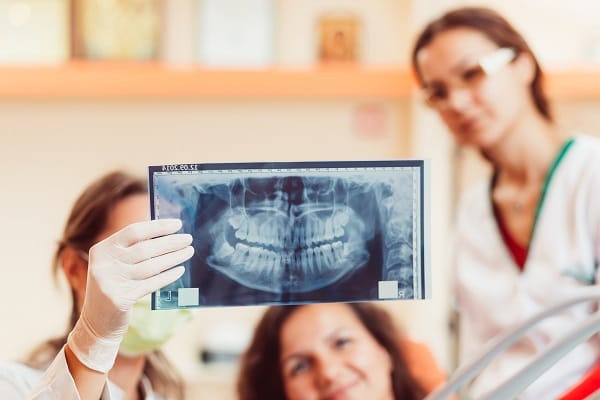Take the Scare Out of Dental X-Rays
Posted on October 6, 2016 in General oral health
 Dentists typically use X-rays to better investigate dental issues not evident to the naked eye, provide a baseline of a patient's oral health history, monitor developing teeth (in children) and assess the health of bones and supporting gum tissues that hold teeth in place. X-rays use radiation to capture those images, and you've probably heard that radiation can be harmful to your and your children's health – but you don't have to be spooked.
Dentists typically use X-rays to better investigate dental issues not evident to the naked eye, provide a baseline of a patient's oral health history, monitor developing teeth (in children) and assess the health of bones and supporting gum tissues that hold teeth in place. X-rays use radiation to capture those images, and you've probably heard that radiation can be harmful to your and your children's health – but you don't have to be spooked.
Not only is the amount of radiation used to take X-rays relatively low; dentists employ several safeguards to protect patients from unnecessary exposure. Before an X-ray, your hygienist will give you a lead collar and apron to wear. This blocks radiation from contact with other parts of your body. Your dental office should be using X-ray equipment with high-speed film, which creates the image more quickly, further reducing radiation exposure. Your dentist could also be using digital X-ray technology, which requires as little as 10 to 20 percent of the radiation needed to create traditional film X-rays.
X-ray schedules are customized to fit the individual needs of adults and children rather than applying a standard to all patients. Often times, a dentist can inspect baby teeth and recognize signs of tooth decay or other dental issues without using X-rays. Patients with permanent teeth (both adults and children) are likely to have X-rays taken more frequently as a dentist is not always able to see decay between permanent teeth.
Avoiding X-rays could result in an inaccurate diagnosis or incomplete treatment due to lack of knowledge about the problem. Your dentist should examine your mouth first and only order those images that are essential for making a proper diagnosis.
It's a good idea to ask for a copy of your X-rays if you decide to change dentists or need to see a specialist. Having current X-rays available will prevent duplication of existing films and cut down on your exposure to radiation.
If you have any concerns about X-rays or radiation, be sure to discuss them with your dentist. For more information, visit the American Dental Association's (ADA) website for the FDA/American Dental Association guidelines.